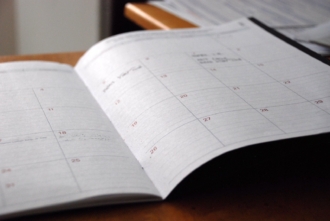“Mondays are the potholes in the road of life.”
“Shortest horror story: Monday”
“Keep calm and pretend it’s not Monday.”
We’ve all heard people griping about Mondays — not to mention the so-called Sunday Blues that creep in before the most dreaded day of the week.
Many of us hate Mondays. In fact, we dislike the first weekday so much that we overestimate its power.
Harvard psychology professor Daniel Gilbert explains that just as “we overestimate how happy we will be on our birthdays, we underestimate how happy we will be on Monday mornings, and we make these mundane but erroneous predictions again and again, despite their regular disconfirmation.”
There’s nothing inherently bad about Mondays. It’s mostly just the mainstream chatter about them, amplified by social media, that gets us down on Sunday evening.
As the CEO of Jotform, I observe how engaged our employees feel every day of the week. In an ideal world, our teams would be just as pumped on Monday morning as they are on Friday afternoon.
Hiring people with positive attitudes helps, but as employees and managers, we can take several other steps to rescue Mondays and eliminate the #SundayScaries.
But first, a look at why we started glorifying the weekend and hating so hard on Mondays.
Why do we despise Mondays?

For starters, we can blame work.
In a survey of over 1,000 respondents, Monday Campaigns — a non-profit public health initiative associated with Johns Hopkins, Columbia, and Syracuse Universities — found that nearly a third of people (32%) named work as the source of their Monday blues.
“You had [two days] off for the weekend, unplugged, relaxed and had fun,” says Kathleen Hall, CEO of The Stress Institute and Mindful Living Network.
“By Sunday night, you begin to get anxious about returning to your to-do list at the office, office politics, your commute and responsibilities. You can experience a negative stress response as you get anxious or depressed about returning to work.”
After two sweet days of freedom, just thinking about the office can stir up feelings of anxiety and dread. Because for many people, Monday means a hard stop to everything we cherish about the weekend.
Several years ago, researchers from Rochester University recorded the moods of 74 working adults in order to learn what differentiates weekdays from weekends. They discovered that autonomy and connectedness had the biggest impact on the higher levels of wellbeing that many people experience on Saturday and Sunday.
It makes sense. On the weekends, we choose how we spend our time and with whom we spend it. For most of us, that means lively dinners and lazy days with family and friends.
Workdays, on the other hand, feel decidedly more constrained, and that can take a toll on our mood. But perhaps not as much as we think.
An Internet survey revealed that day-of-the-week stereotypes (i.e., “Monday blues,” “TGIF,” etc.) were strongest when people predicted their moods for each day of the upcoming week. The stereotypes were less obvious when they remembered their moods from each day of the preceding week, and least apparent in the momentary moods they actually experienced on each day.
We feel worse merely anticipating Monday than when we experience it in real time, at the office.
Nonetheless, that anticipatory anxiety has physiological effects.
According to Dr. Susanne Cooperman, neuropsychologist and psychoanalyst at NYU Langone Health, the Sunday scaries cause the adrenal glands to release adrenaline and cortisol.
“They flood the system and you have a real stress reaction and it feels like real anxiety,” she explains.
As we all know by now, continued anxiety can have a host of negative health effects. All the more reason to change our thinking about Mondays.
So… What can I do?

To reclaim Mondays and banish the Sunday scaries, we need to reframe the week. There’s no reason to enjoy Mondays less than any other day.
“If I could decide, on Mondays we should all celebrate because the world is awake again,” writes Tobias van Schneider, co-founder of Semplice. “We can work, get some shit done and do what we love.”
I welcome that idea: we should celebrate Mondays.
And if we’re engaged in our work, we can. We can see it as an opportunity to kick off a new project, build interpersonal connections, or to tackle an important item on our to-do list.
If we’re not engaged, then we need to make some changes. Maybe that means taking on added responsibilities; or maybe that means a job change.
Work is where most of us spend the lion’s share of our time. If we’re privileged enough, it also contributes to our sense of purpose. That’s why I disagree with the work/life dichotomy. Work and life aren’t separate spheres; work is an integral part of our lives.
We shouldn’t view work as the foil to otherwise enjoyable parts of the day. To that end, we can take a few specific steps to start loving Mondays.
Three steps to revive your Mondays
1. Give yourself some Sunday TLC
Start rehabbing Monday by treating yourself well on Sundays. This helps us get into a positive mindset before the week begins. Peggy Neu, president of The Monday Campaigns, recommends a S.E.L.F. Care Sunday night plan, consisting of:
- Serenity. Try some form of relaxation, like meditation. If you haven’t tried the Headspace app, I highly recommend it (and this is not sponsored). It’s an approachable way to start meditating and squeeze even a quick session into your busy schedule.
- Exercise. Get moving to reduce stress hormone production and refresh your body and brain.
- Love. Take a moment to express love and gratitude for your life. That might include a journaling session, but it can also be just a few silent affirmations.
- Food.I know… that Bottomless Bloody Mary brunch special is tempting. But try to eat nutrient-rich, feel-good foods, and go easy on the caffeine, alcohol, and fatty foods, which tend to increase anxiety.
2. Plan mood-lifting activities for Monday
Once the week kicks off, infuse Mondays with mood lifters. Connectedness increases our wellbeing on the weekends, but too often, we skimp on quality time with friends, family, and co-workers during the week.
Find a local trivia night. Gather a group to try a new restaurant. Rally the team to sign up for a spin class (bonus: group exercise has been shown to kick your workouts up a notch).
Top Silicon Valley companies like Uber, Facebook, and Salesforce have also invited employees to some pretty creative activities, like Karaoke Rickshaw, espionage-themed adventure games, and music video competitions.
3. Eliminate known stressors
This final step can be practiced every day of the work week. When we have less control over our schedule and with whom we interact, it’s crucial to minimize known stressors — especially because we’re particularly susceptible to stress, just from being at the office.
Writes Mikael Cho, founder of Unsplash:
“Even if you’re good at managing your own emotions, if someone around you is stressed, you’ll feel stressed. The more people around you are stressed, the more the feeling multiplies.”
Stress, he explains, has a network effect; it spreads quickly.
Start by getting a hold on your own tension and anxiety. If you find yourself overwhelmed by the feeling of having so much to do on Monday, Cho recommends creating a short, prioritized to-do list that’s flexible enough to adapt when things inevitably pop up.
That doesn’t mean listing everything you’d like to accomplish in the near or far future. It does mean thinking realistically about your day and compiling a list of everything you can reasonably hope to tackle.
Include time for focused work — to do the kind of thoughtful tasks that require your full attention. And communicate your do-not-disturb status to others.
“I realized one of the mistakes I made was not telling the people I regularly worked with when I was going into a stretch of focused work,” writes Cho. “Not everyone works this way so if I choose to, I need to tell the people around me.”
Morning pages are among my most important, focused work tasks. Before the day’s onslaught of emails and meetings, I turn off all notifications and free-write about pressing ideas, issues, or anything that’s on my mind. Later, those notes might become an email or a presentation outline. But the most important part is committing the ideas to the page.
And remember the mood-lifting activities from Step 2. Pencil in those much-needed breaks, including time with friends and colleagues.
Make your #MondayMood a positive one

Maybe you’ve heard the term “weekend warriors:” people who plan epic weekends to compensate for their lackluster weekdays.
I’d much rather be a Monday champion than a weekend warrior. And hopefully, bringing those positive vibes to the office diffuses some Monday stress, and gets my team pumped for the week ahead, too.
So before you post another #SundayScaries pic on Instagram, consider whether it’s time to reconsider the start of the week.
It takes some effort, but I think we’d all be happier and more productive if we learn to love Mondays.













Send Comment: